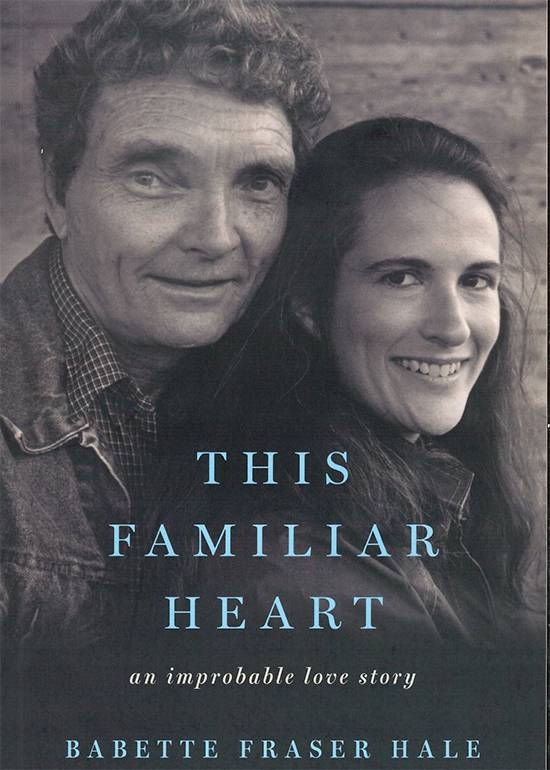Listen Up Here

This Familiar Heart: an Improbable Love Story
by Babette Fraser Hale.
Houston: Winedale Publishing, 2024.
308 pp. $20.00 Paperback.
Reviewed by
Audrey Colombe
We often forget how quickly times change—for us and for society at large—as we buckle up and carry on with our lives. Parts of the ebb and flow of social concern are, however, relative constants—like the shaping of an important partnership. The dramatic landscape of loving partnerships may make them appear to be an excellent source material for a “how-to” book. (The twentieth century “advice article” for the lovelorn is a heavily-played part of U.S. publishing history.) In the case of Babette Fraser Hale’s new book, This Familiar Heart: an Improbably Love Story, we get a look back on a decades-long marriage—by every twist and turn of a problematic start. We know they made it into decades of marriage; the book’s opening question is how?
Hale’s book is dedicated to her husband, Leon Hale, the popular newspaper columnist. The book is informed by his cheerful reputation and offers a behind-the-scenes study of his personal life with Babette. The second half of his adult life, basically; they get together in the 1980s; Hale died in 2021 just a few weeks shy of his 100th birthday. As an exercise in grief, the book’s detail is a chronicle of the couple’s beginnings, an elegiac rendering of their relationship’s arranging set against a background of disapproval we see only glimpses of. Interestingly, many scenes are written in the third person—an objectification that lends a steady hand, perhaps, to the grieving author. Along with the narrative itemization of how much each of them will have to adjust to the other, the book sits on a large pile of twentieth century justifications having to do with Leon and Babette’s age difference and class circumstances. How untoward are the gaps? They might seem minor by today’s intergalactic measure. How will they navigate the distances? Babette makes a lot of compromises.) Much of the problematic social background is alluded to, rather than spelled out, but it’s clear that the change in life circumstances, for each of them as their relationship took hold, felt monumental.
Babette Hale does not try to tell anyone else's story in this book. The ex-wives, the previous husband, and the myriad other relationships are mentioned only in exposition. There is no complaining, gossip, or comparisons in This Familiar Heart, but Texas and Texas-sized personalities are appreciated throughout. A pretty steamy letter shows up about half way through, too. The book is in no way ‘soft core porn’ but we discover again and again that Babette and Leon have a good time in the sack. For much of the early chapters, Leon sounds like a nice, drunken skirt-chaser, but Babette is quite clear he's more than that: a here-and-now kind of guy who energizes her.
Recently I’ve heard myself say Gen Zers remind me of my grandparents. And by that I mean there’s a certain kind of stoicism, a quiet acceptance, a survivor's instinct in a deep pool of personal unknown that produced people who could be lovely to spend time with but with whom you never quite knew where you stood. By the end of Hale’s book, I wondered if that’s a little bit like Leon. The climactic part of the narrative is slightly propped up by a found letter from a woman Babette can’t identify, but the suggestion is that the marriage might have also been complicated in ways she still isn’t sure about. As such, this is in no way a ‘how-to’ book but a contemplation on pairing, on keeping room and leaving room in a partnership. Though I doubt many Gen Z types would reach for this book, I wonder what they would think if they did. There is something here about people finding each other in a harsh world by figuring out how to respect each other's needs and limits. And certainly, something for surviving friends and family members to consider about their older relatives if they haven't already.
Audrey Colombe is a writer who grew up in Oakland, California, living in Houston, Texas. She writes poetry, fiction, and nonfiction, edits and teaches and generally tries to work with words and people without causing too much damage.
